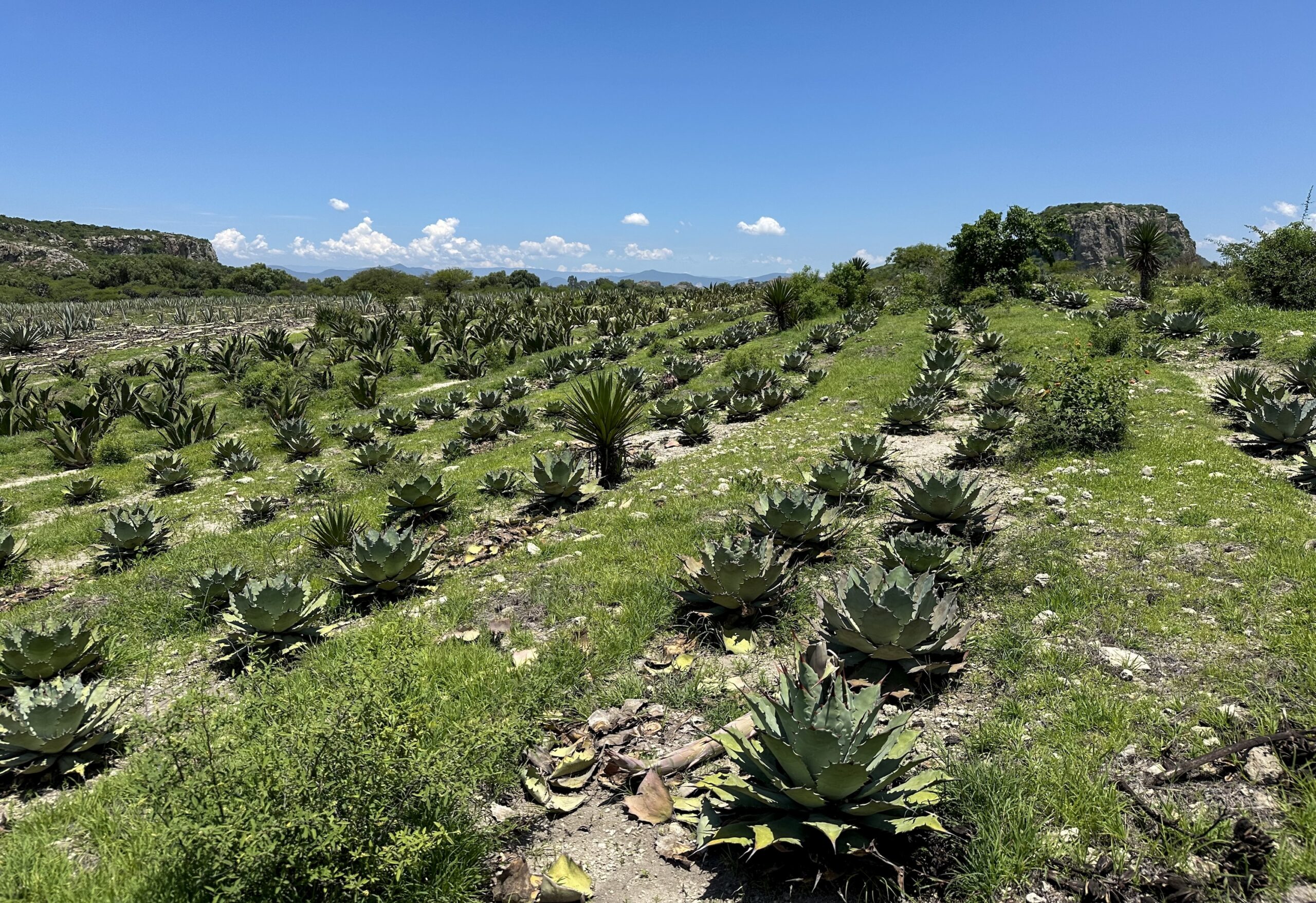“Far more than just another drink — more even than the economic and sometimes spiritual importance it holds to the communities that work with it — mezcal right now is no less than a litmus test for the future of humanity.”
Consider for a moment the challenges of our age: culture wars and social division; the wealth gap and cost of living crisis; climate change; loss of biodiversity and ecological collapse. These are all issues caused by an overly-capitalist, consumption-based society, and I believe they can all be solved with a proper appreciation of traditional mezcal and the culture behind it. That’s why I made a radical career change some years ago to work with agave rather than money.
Far more than just another drink — more even than the economic and sometimes spiritual importance it holds to the communities that work with it — mezcal right now is no less than a litmus test for the future of humanity.
What we have in traditional mezcal is a pre-industrial product that to this day is made in a pre-industrial way. That means by hand, using local materials and hereditary practices. Local agave, endemic to a region’s specific microclimate is cooked, crushed, fermented and distilled using tools, wood, water, and methods local to that community or specific family and in harmony with the natural environment. Mexico is one of the most diverse places on earth. The state of Oaxaca alone has more plant species than the whole of Europe. It also has 16 distinct indigenous cultures, each with their own language and way of doing things.
So from one village to the next, producers are making a unique product. Extrapolate that all over Mexico and you get an incredibly complex scene: thousands of different people putting hundreds of different species and subspecies of plant through a production process with innumerable nuances, resulting in endless, unique, never-to-be-replicated batches. Exploring it all is a fascinating and never ever ending journey — one that I’ve been on for the last few years, and that I encourage you to join via the Mezcal Appreciation Society.
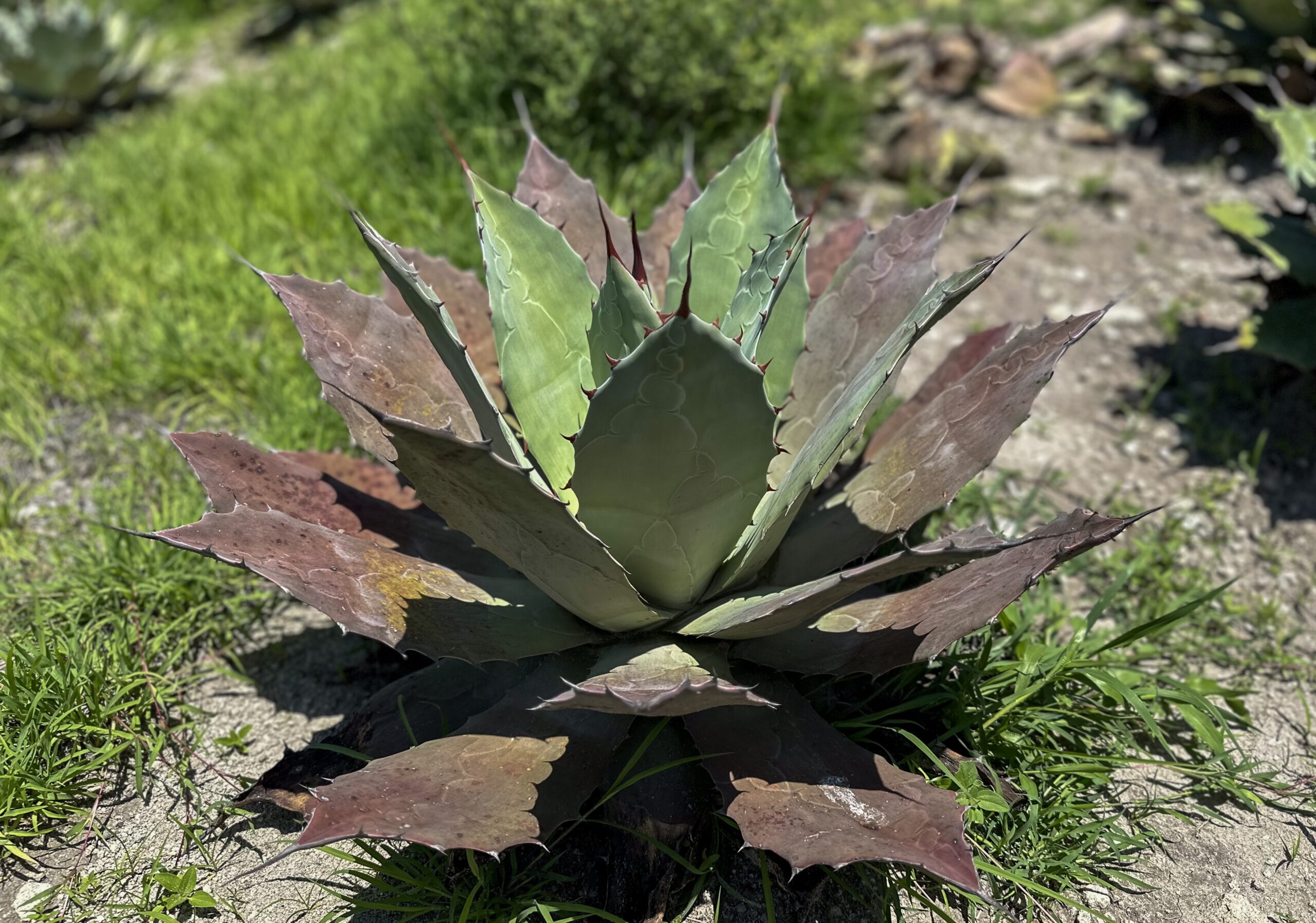
Agave plant. Image courtesy of Lauren Mowery
But what’s happening now is this traditional, sustainable, community-specific elixir of the gods is clashing head-on with the forces of capitalism and its extractive, exploitative, consumerist nature. Capitalism doesn’t care about culture and tradition, and it will come and extract as much agave as possible, if that’s what’s selling. And that is what’s selling.
Historically, agave would be harvested from the wild or cultivated within a milpa — Mesoamerica’s traditional agriculture system of growing complementary crops together in a holistic and sustainable way. In some more remote mezcal communities, that’s still the way it’s done. But with the influx of big-money brands and international conglomerates driving hard bargains for increased production, milpas are being replaced by field after field of fast-growing, sugar-rich agave mono-crops, spurred to mature faster with the use of chemical fertilizers.
Over the last 8 years, I’ve traveled extensively through agave communities in rural Mexico, and even in that relatively short time I’ve noticed a shocking level of deforestation. The rolling hills outside towns like San Juan del Rio in Oaxaca’s Tlacolula district— once covered in patchwork agave fields — are now planted entirely with row after row of Espadin plants. Along with deforestation, monoculture leads to a host of other environmental problems like soil erosion and deterioration and flood risks. Hearing stories of agave shortages, theft, and the sale of under-ripe plants, and considering that wealthy outside interests are driving much of these changes, I can see a route to the argument that the ‘mezcal boom’ is a form of neo-colonialism, bringing signs of cultural homogenization and the deterioration of the integrity of local culture — witness the aforementioned agave theft.
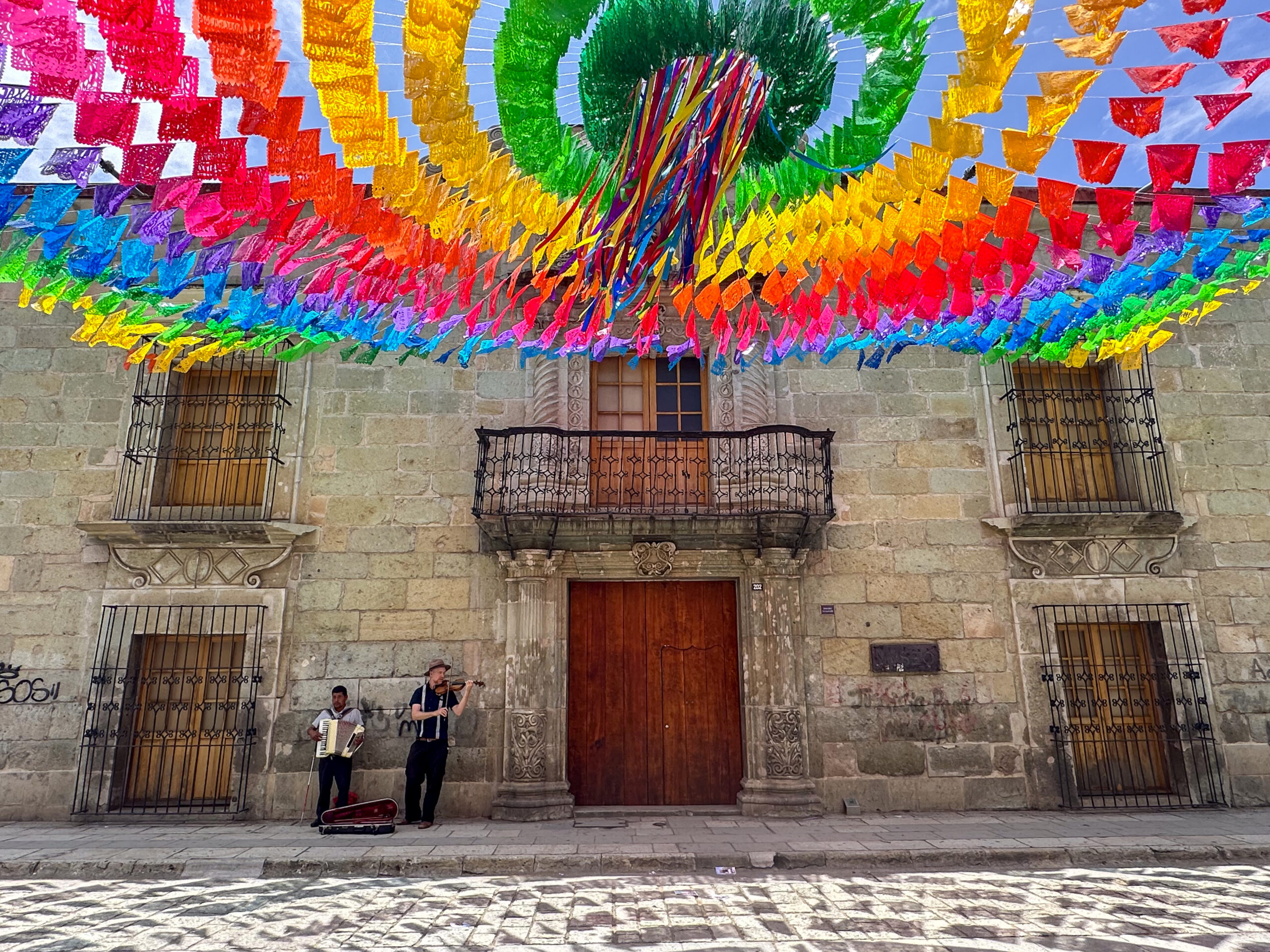
Downtown Oaxaca. Image courtesy of Lauren Mowery.
We have celebrities and conglomerates flying in to make a ‘lifestyle brand’ They find a producer and ask them to increase production. In order to hit the required margins, the producers often have to water down the product to increase yield and lower their tax burden. This brings me to the concept of ‘gusto historico’ or ‘historical taste’, which is arguably being lost as the market floods with mezcal at 40% AVB, well below the strength of the traditional drink, and therefore with far less diverse and interesting flavors.
Plenty of people make the argument that this softer and cheaper version of traditional mezcal is necessary, acting as a gateway from cocktail base to consumers sipping on the good stuff. Personally, I see mezcal a lot more like wine than other spirits, and I don’t think the best way to get someone into quality wine is with a jug of sangria. But nor do I think mixing ice and lemonade is the best way to enjoy exceptional whisky. However you like to drink it wouldn’t necessarily be a problem if all things could happily coexist (aside from the fertilized mono-crop issues already discussed). But if the export market continues to grow at its current rate, and foreign brand owners continue to ask producers to sign restrictive, non-compete contracts, maybe the local stuff and the complex patchwork of gusto historic profiles across the whole country will just slowly homogenize into the same thing. And that would be very sad indeed.
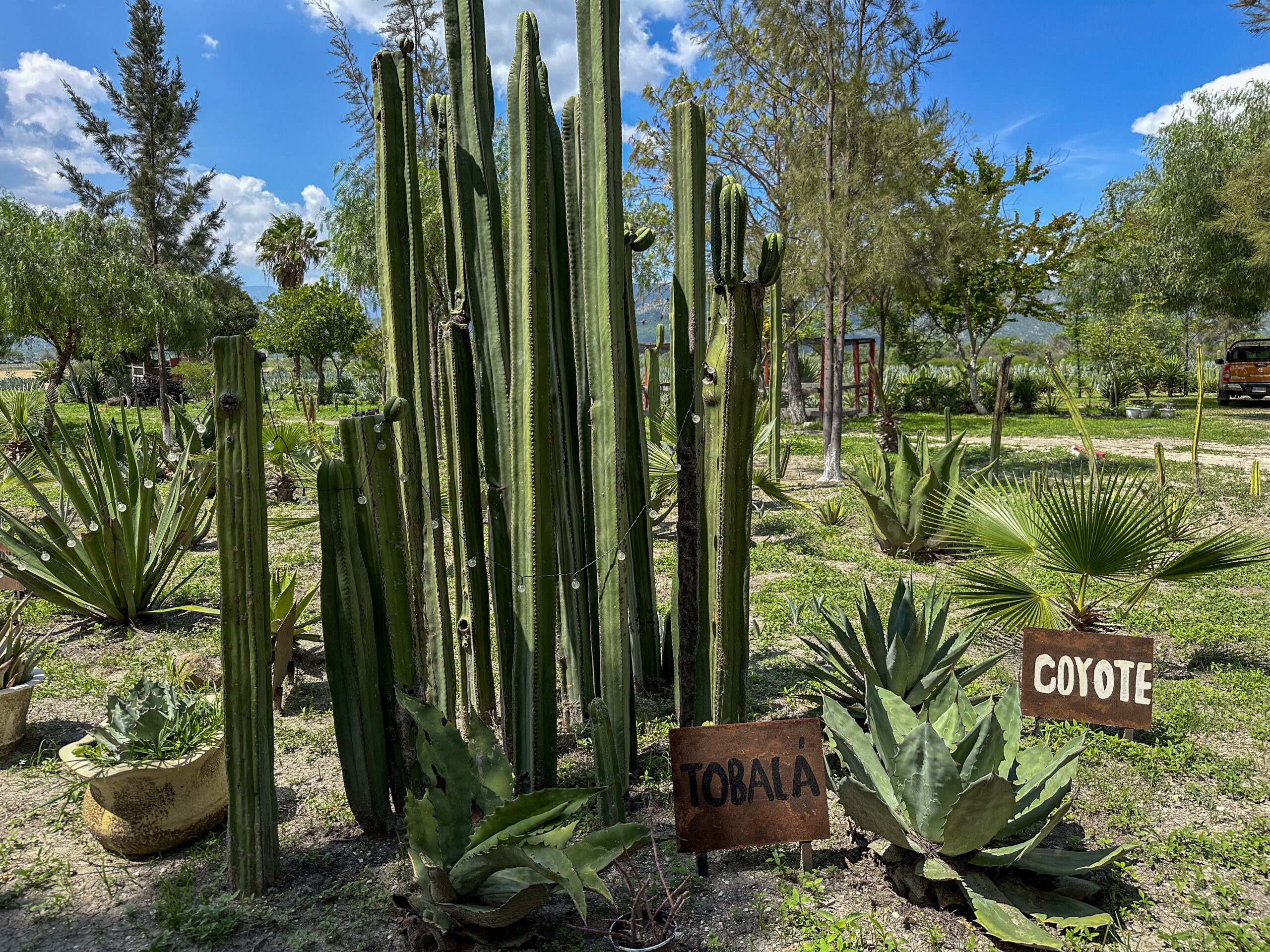
Different species of agave. Image courtesy of Lauren Mowery.
You might say “but all this stuff is protected by a Denomination of Origin, like Champagne.” Well, I’m sorry to tell you that the D.O. does no such thing. D.O’s are geographical things, and ‘Mezcal’ is the largest in the world, covering the majority of Mexico. There’s any number of reasons why the distillate of a particular community, made to its gusto historico, might not fit into the relatively narrow parameters of the mezcal D.O. Given the category’s diversity and local nuance, it’s an unrealistic task to create one piece of legislation that adequately protects all of it.
For commercial purposes this works extremely well. It puts a stamp on the product that says to the consumer, “it’s all good, go ahead and consume,” regardless of the deforestation and cultural homogenization going on in the background, and without concern for independent producers being squeezed out of the growing market. And when the agave starts to run out they can simply adjust the D.O. to expand it to more regions or dilute its standards. At the moment, certified Mezcal has to be made with 100% agave. But with so much demand created by celebrity brands, how long until a mixto category is introduced that can include other sugar sources and additives? I’m not saying anything radical here — that’s exactly what happened with the Tequila D.O, which is fundamentally where the regulation comes from. Today the tequila industry is dominated by a handful of large distilleries that produce for multiple brands, differentiating their products with secret mixes of additives. As sad as that sounds for mezcal, maybe we actually need that mixto category to alleviate the demand for agave and the deforestation and other issues that have come with it.
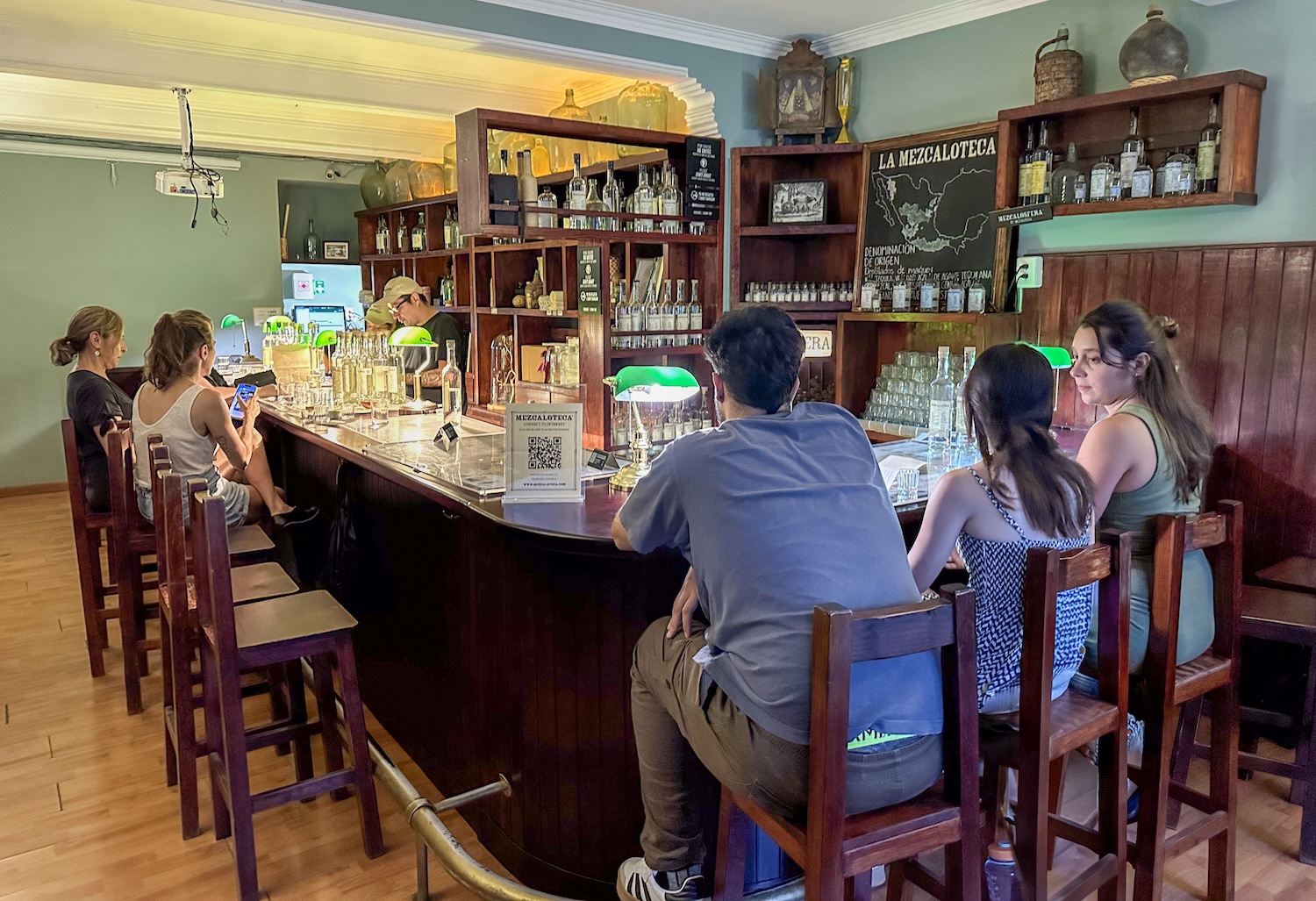
A tasting bar in Oaxaca. Image courtesy of Lauren Mowery.
Mezcal isn’t a lifestyle brand, it’s a way of life that we should all pay more attention to protecting. We all know we’re in the middle of an ecological disaster right now. I heard on a podcast the other day that, at the current rate, the planet is losing 10% of its biodiversity every 10–12 years. That impressive stat about the state of Oaxaca having more plant species than the whole of Europe isn’t pure chance — we’ve killed ours while Oaxaca remains mercifully untouched, until now.
Mezcal is this thing that’s been bubbling away unchanged for centuries, sustainably and in harmony with nature. Now it’s being ‘discovered’ and having its moment. But among the celebration of growth and the clamor for profits, we’re at risk of destroying the very diversity that makes it great. If we can’t stop ourselves from destroying the diversity of mezcal, what hope is there for the less delicious parts of our ecosystem?
Jon Darby is the founder of Sin Gusano, which promotes the diversity and significance of single-batch agave spirits through its Mezcal Appreciation Society subscription club, limited releases, and pop-up bars and events. He divides his time between the UK and Mexico, where he furthers the project’s mission by partnering with independent family distillers to showcase unique examples of these community spirits. You can learn more at singusano.com.


